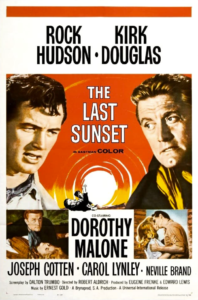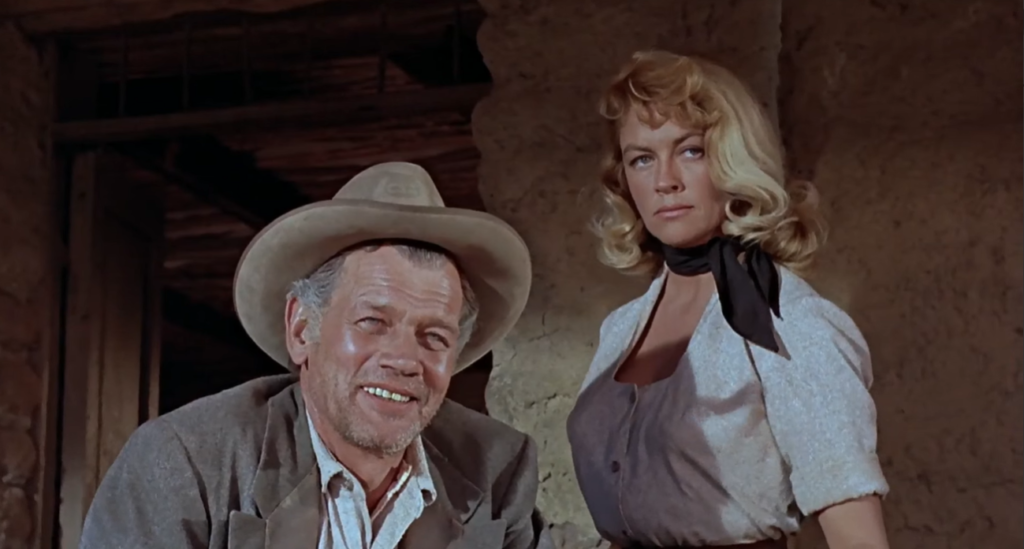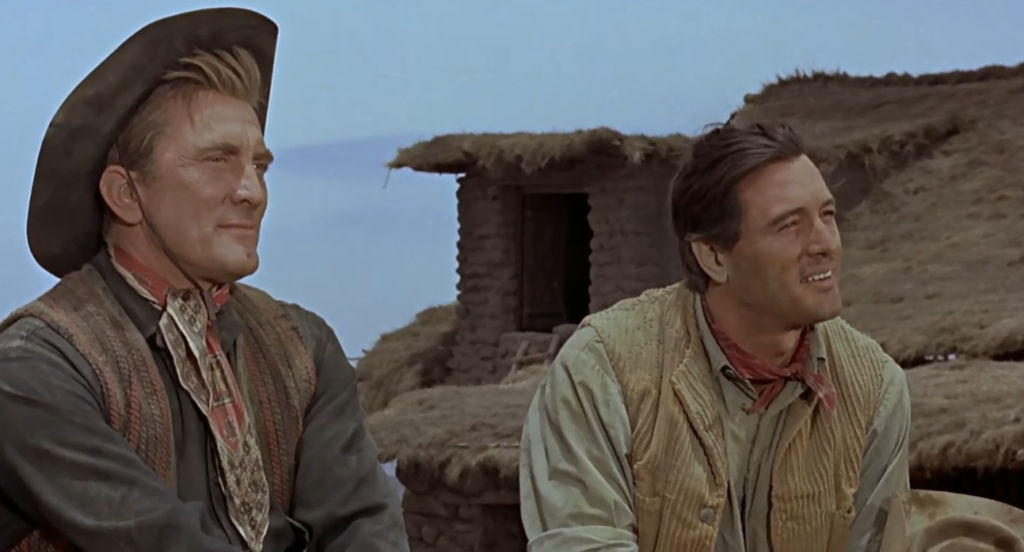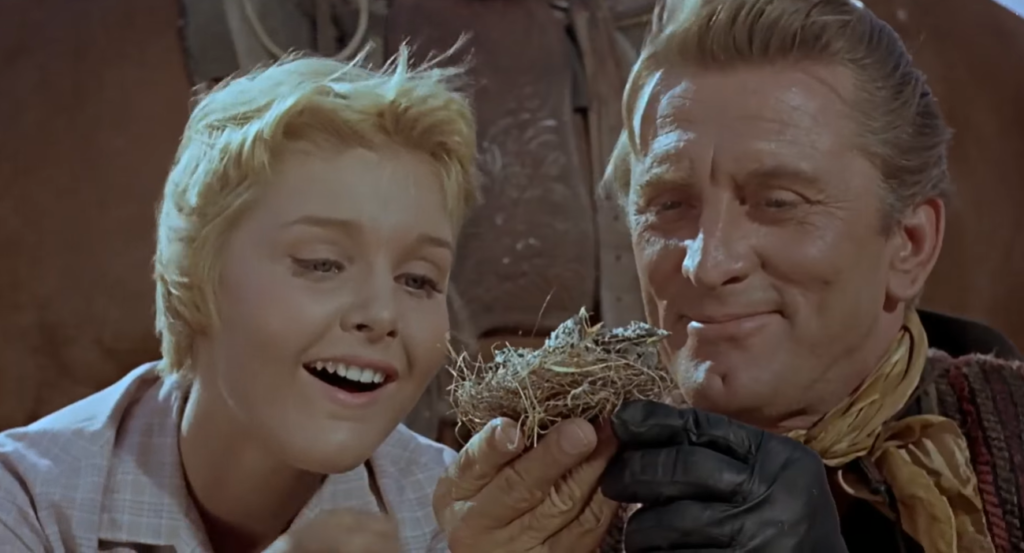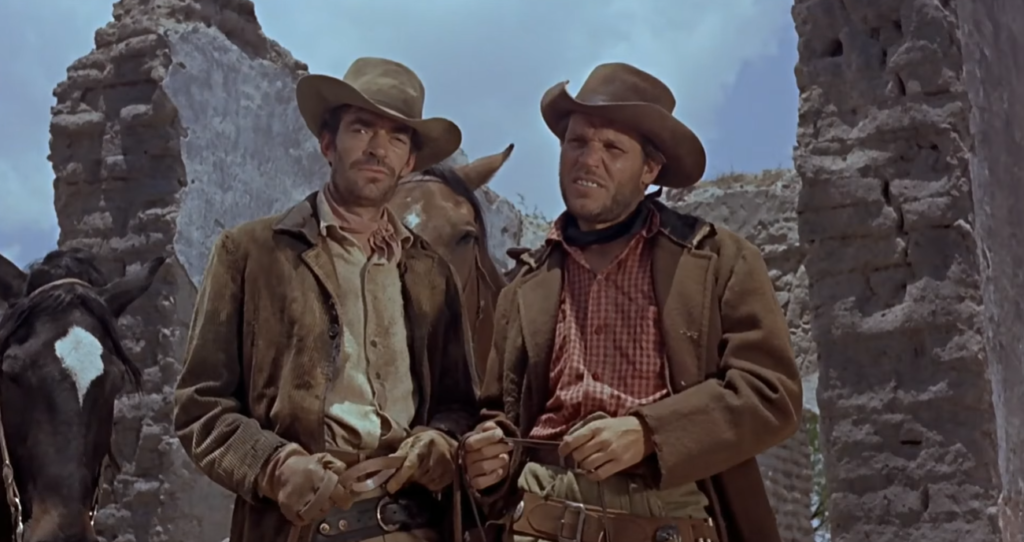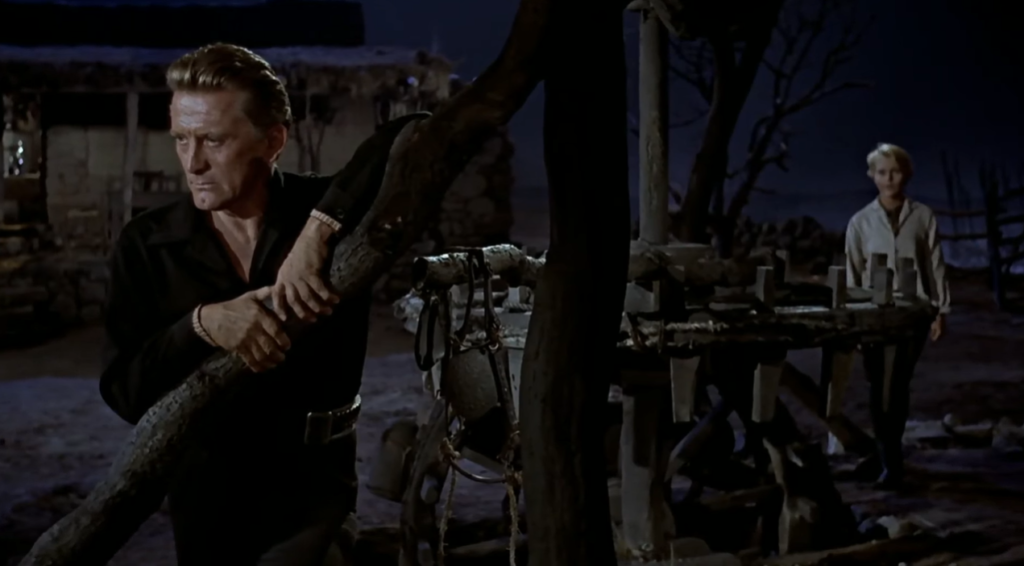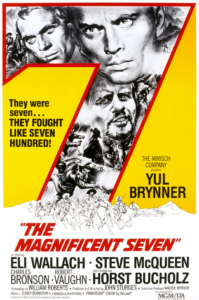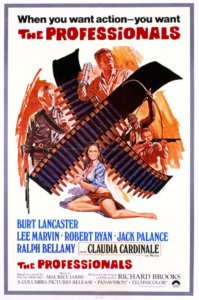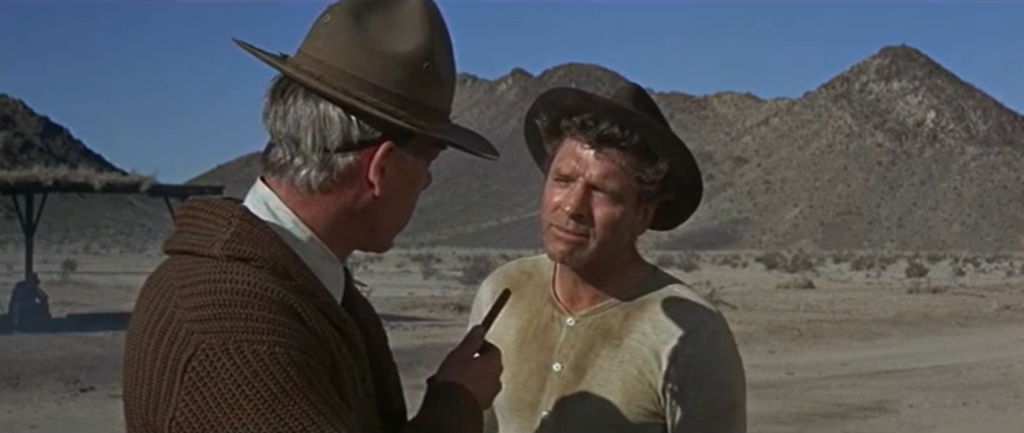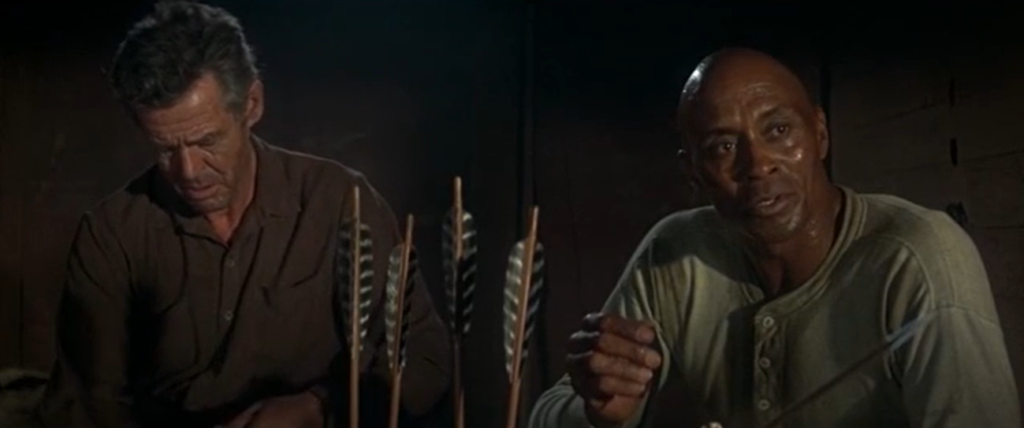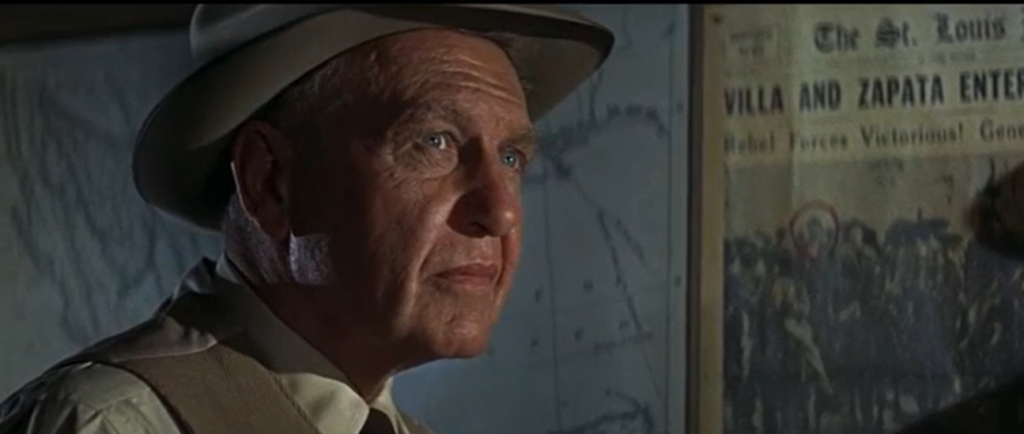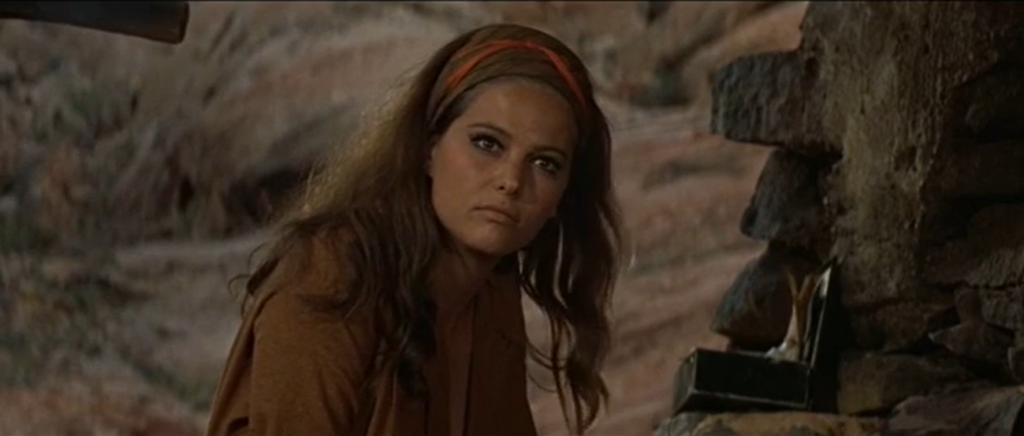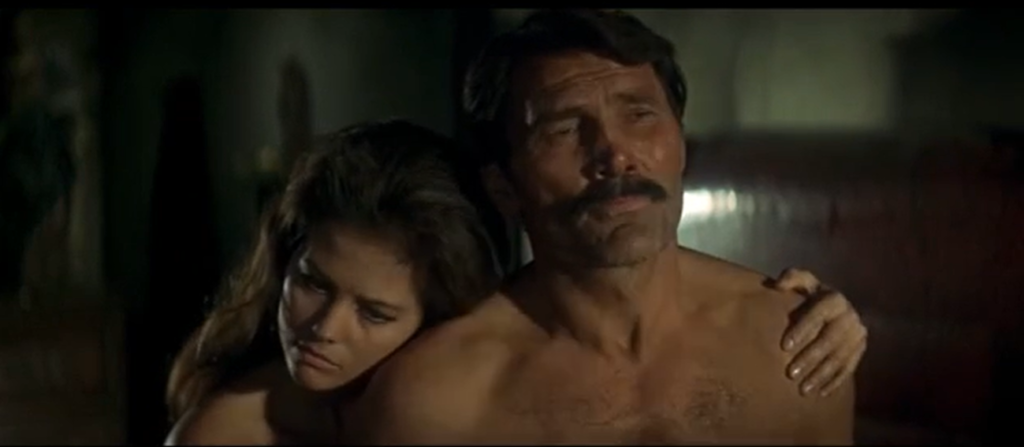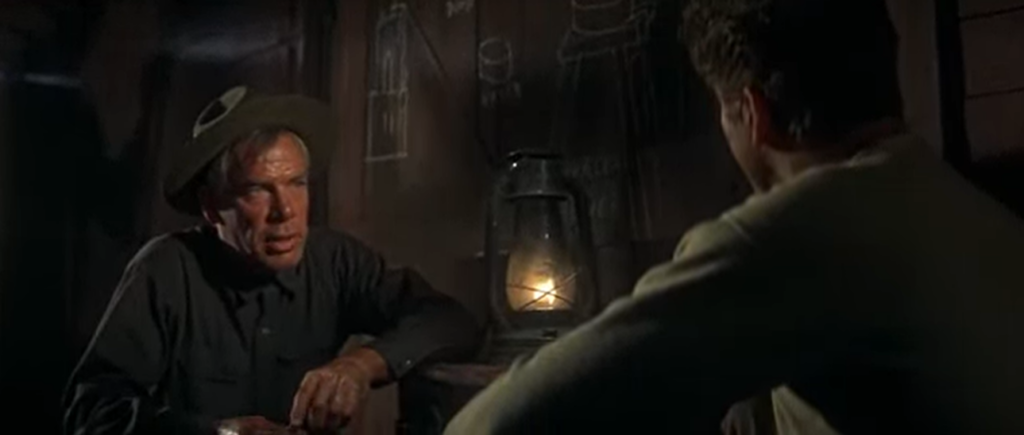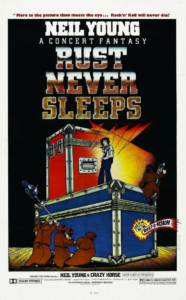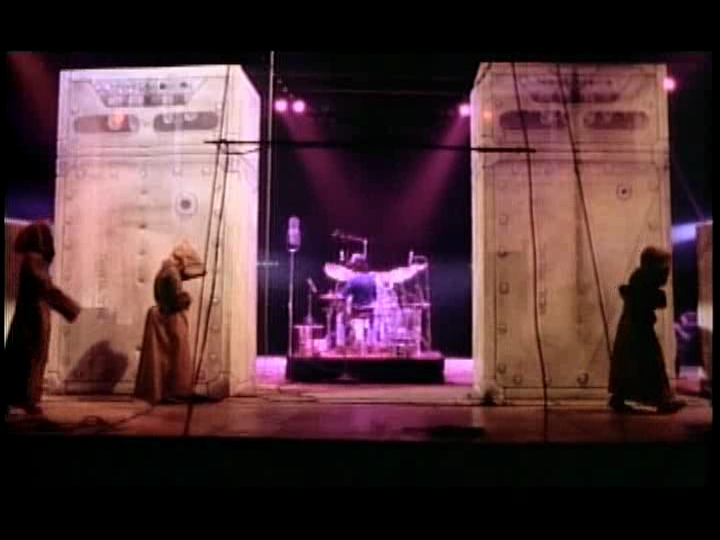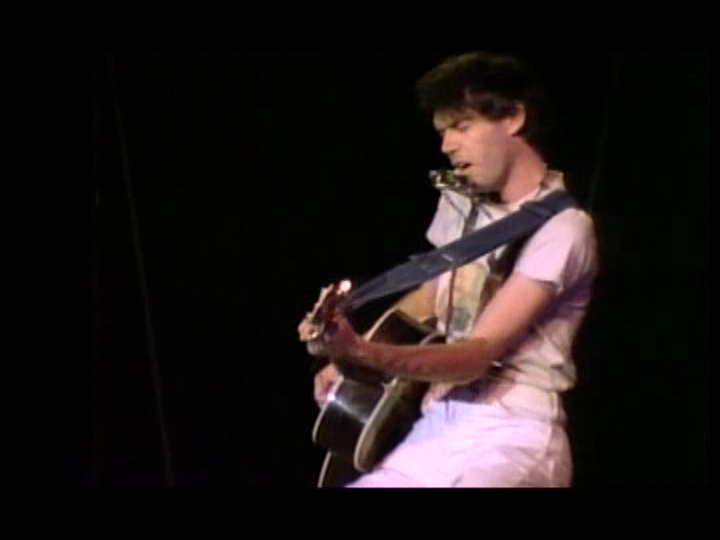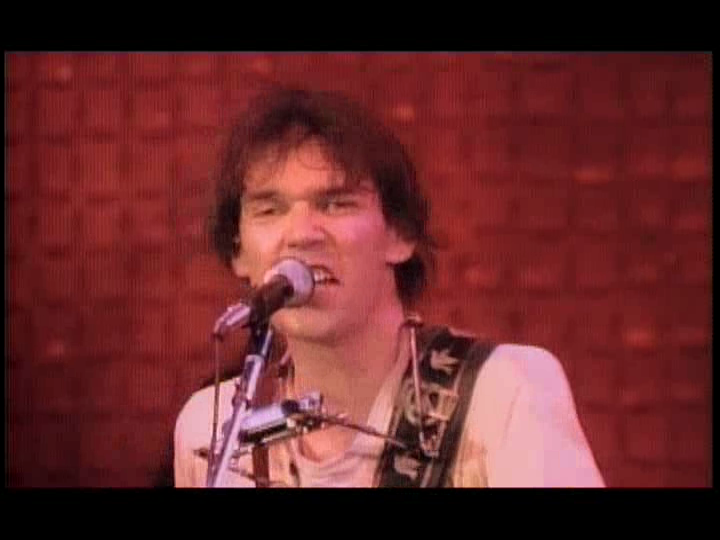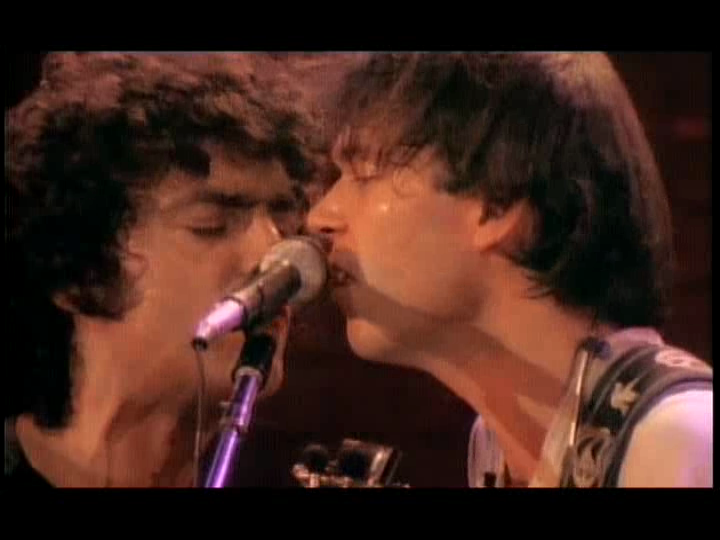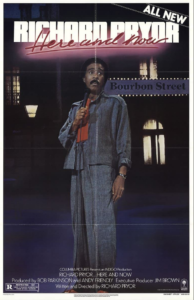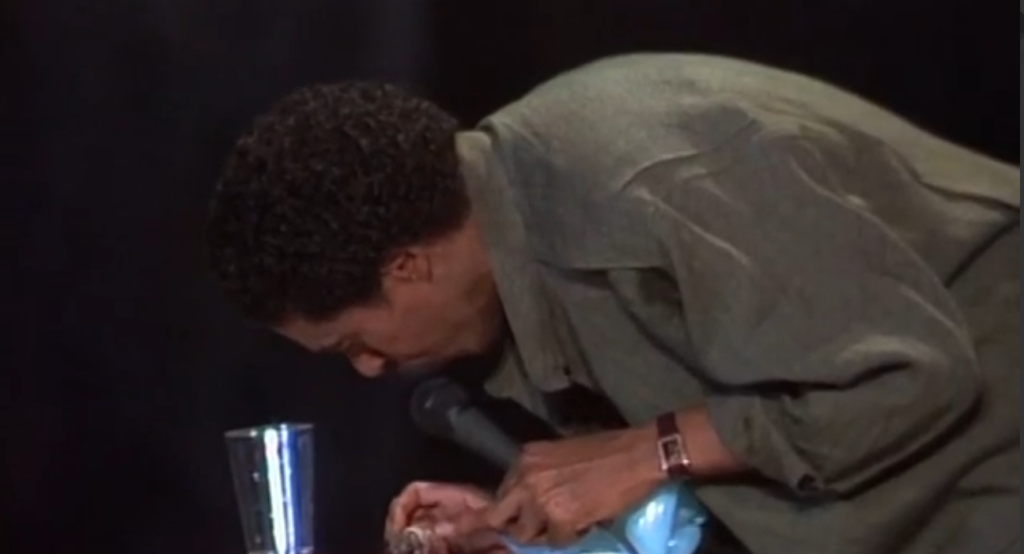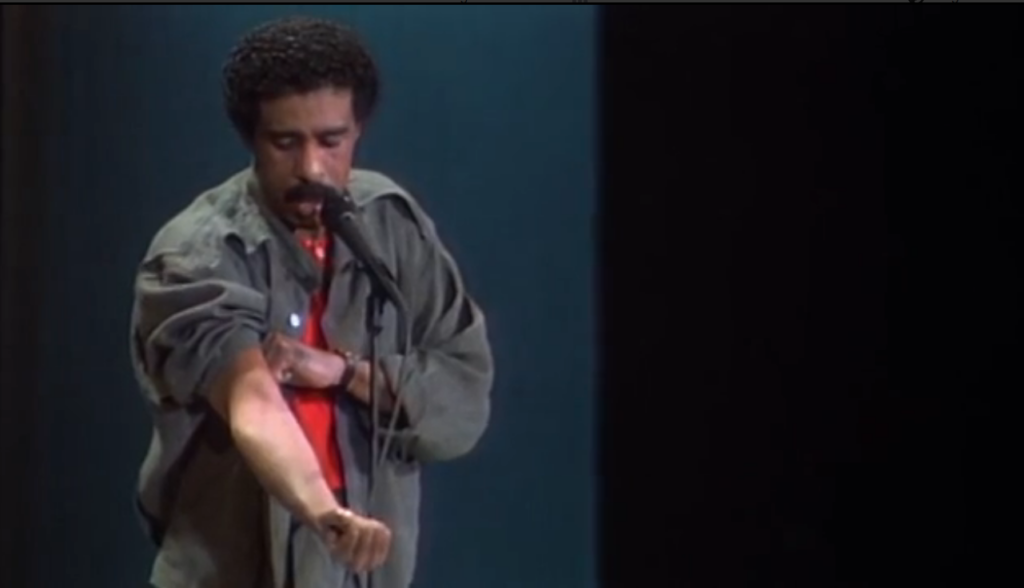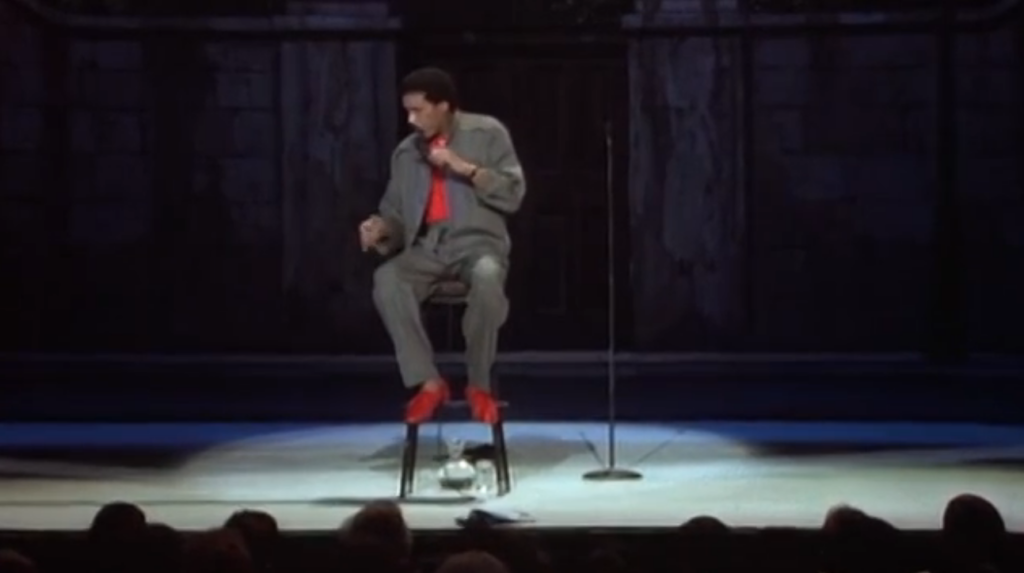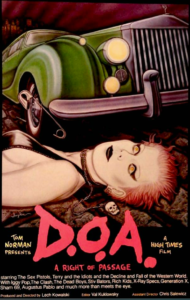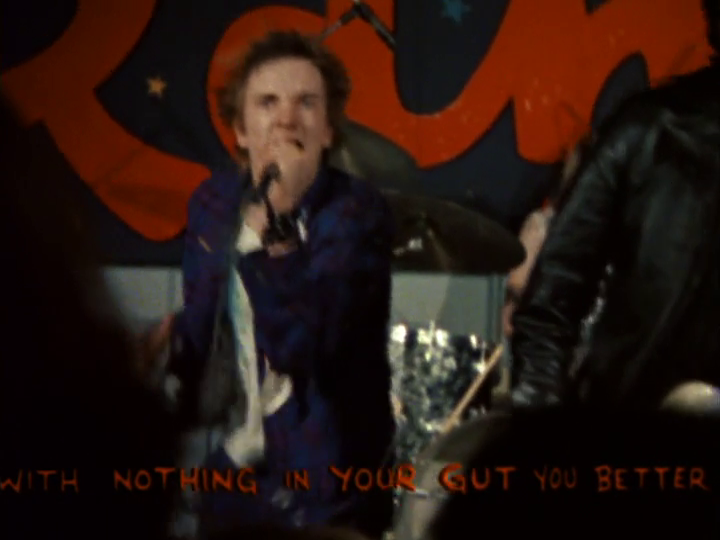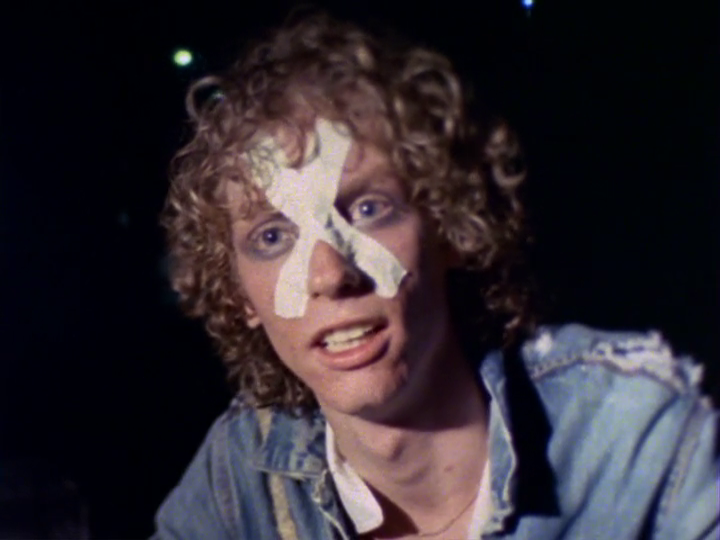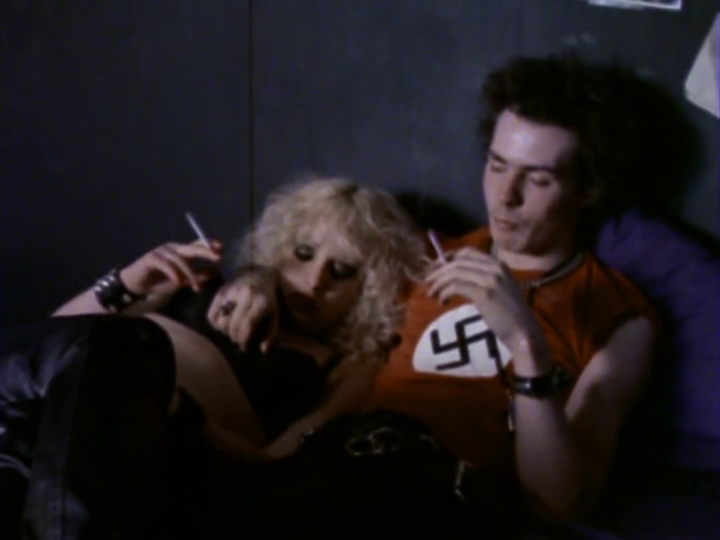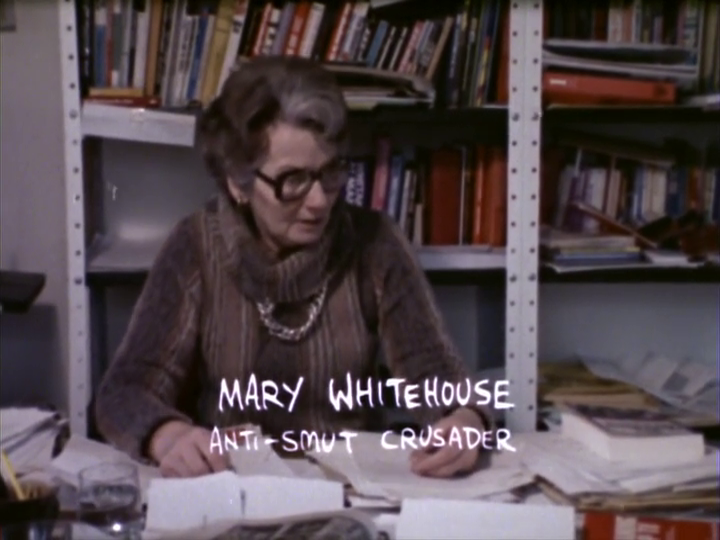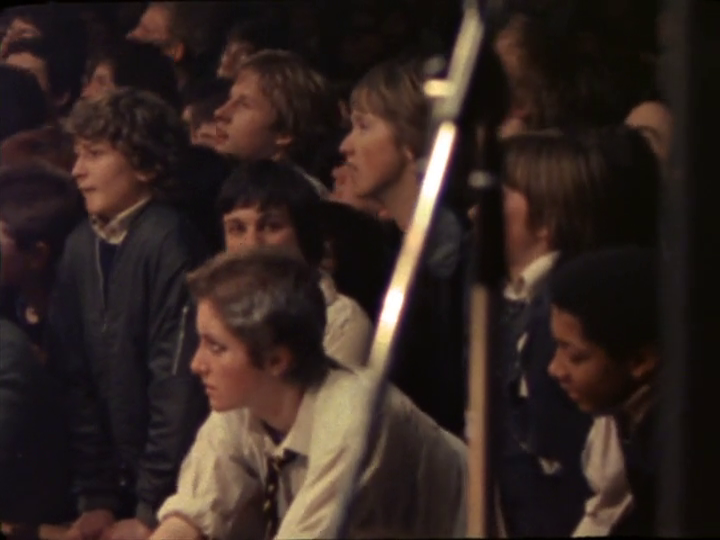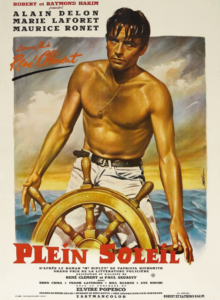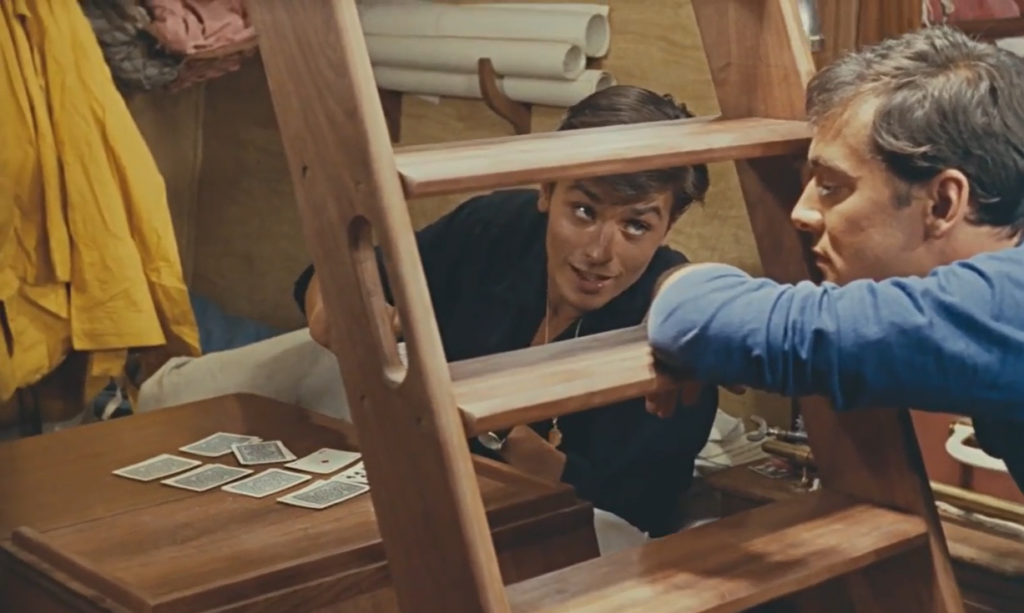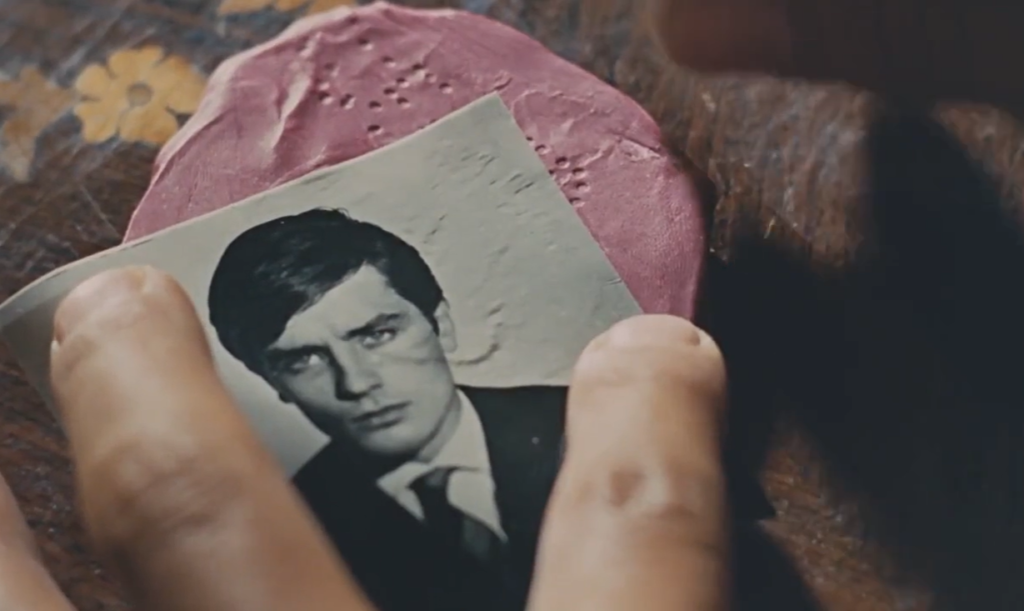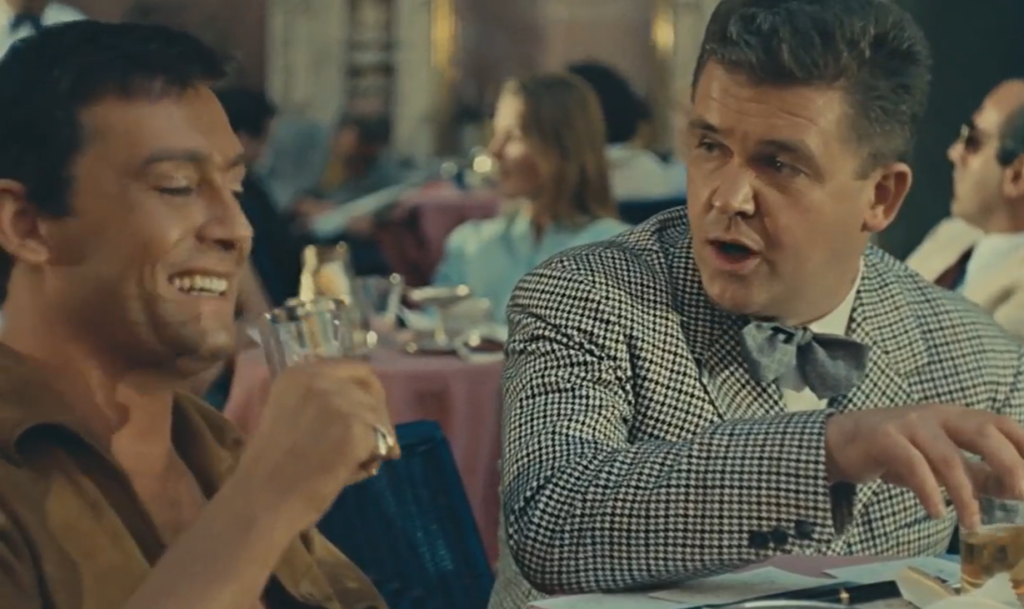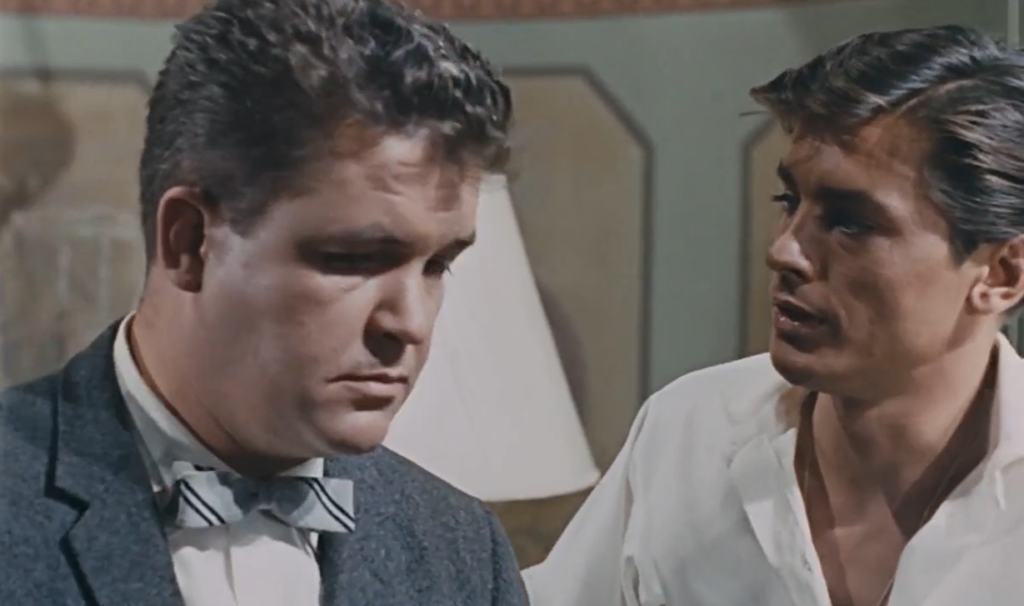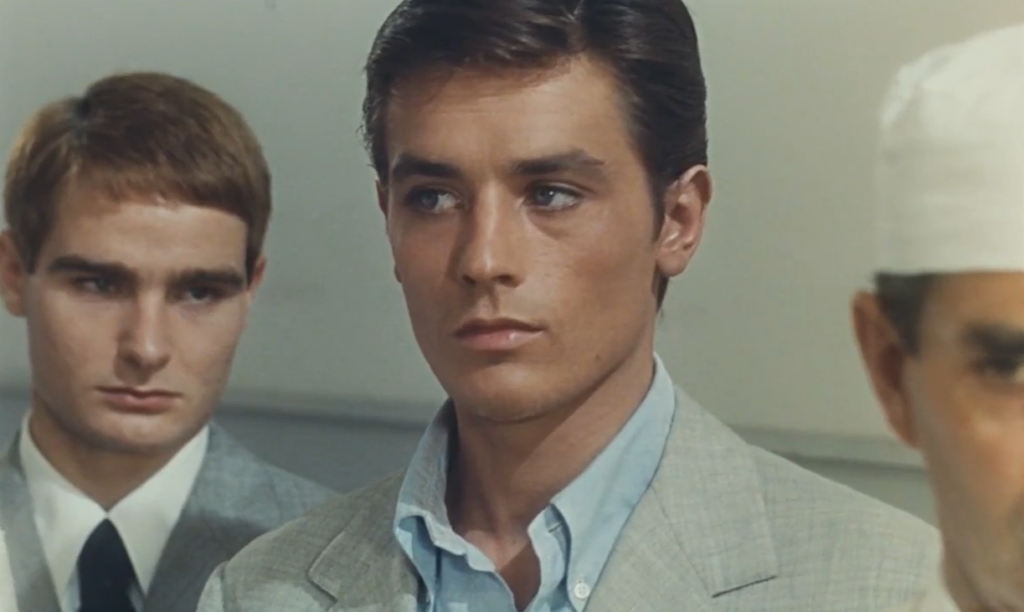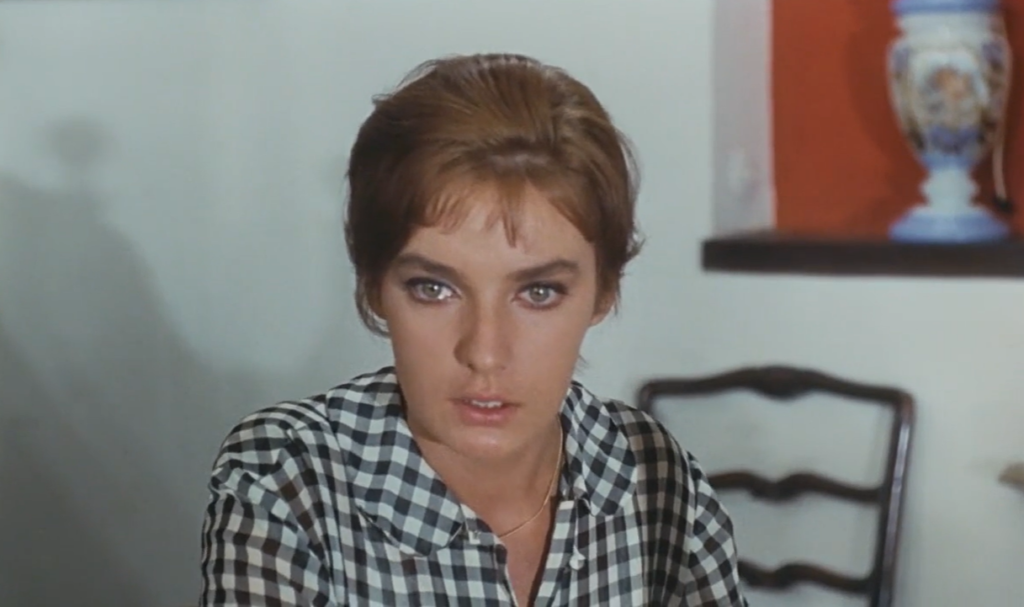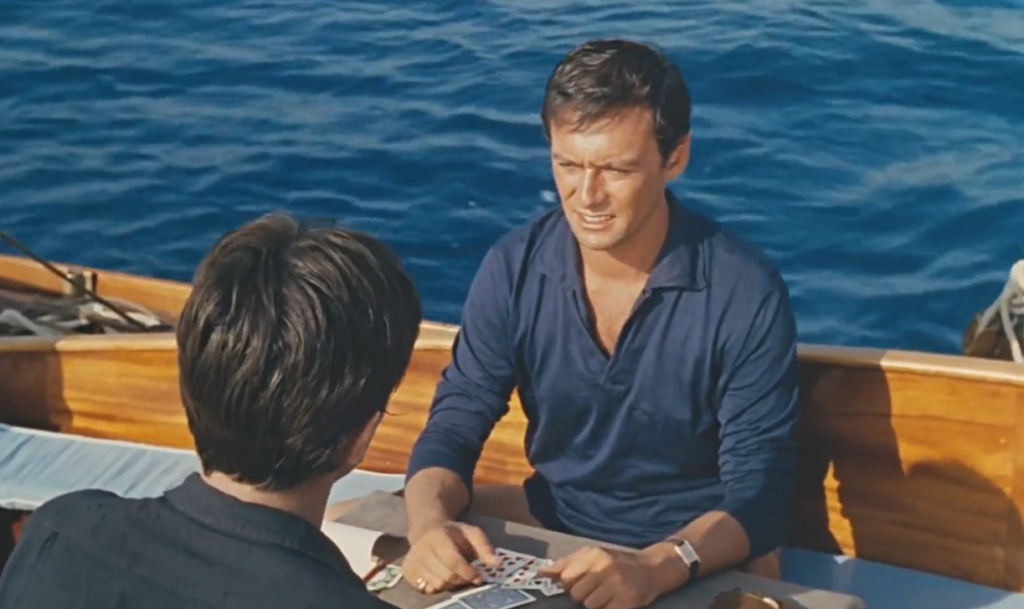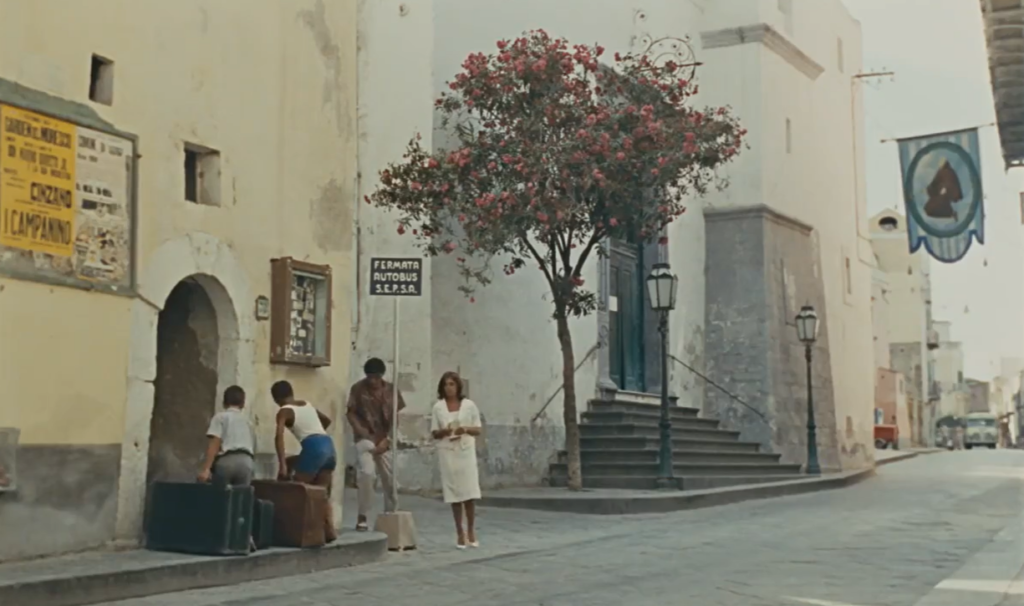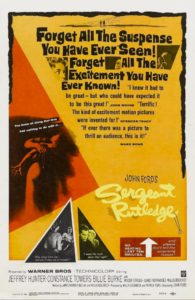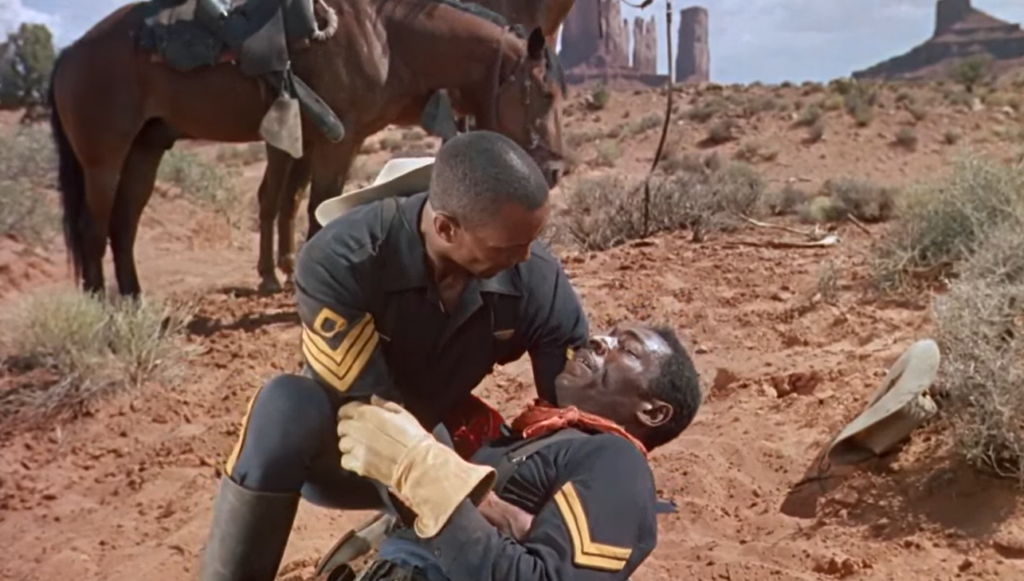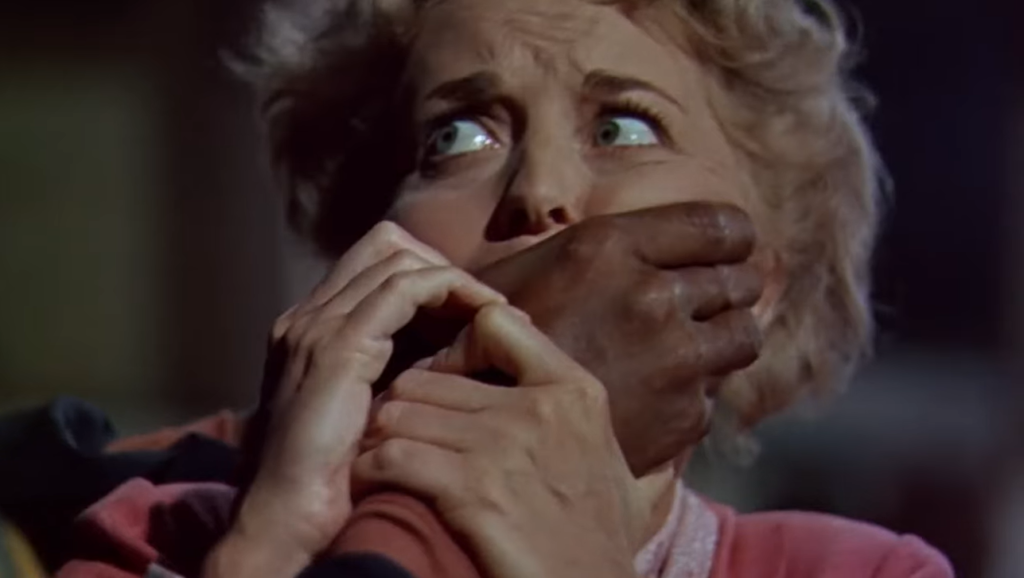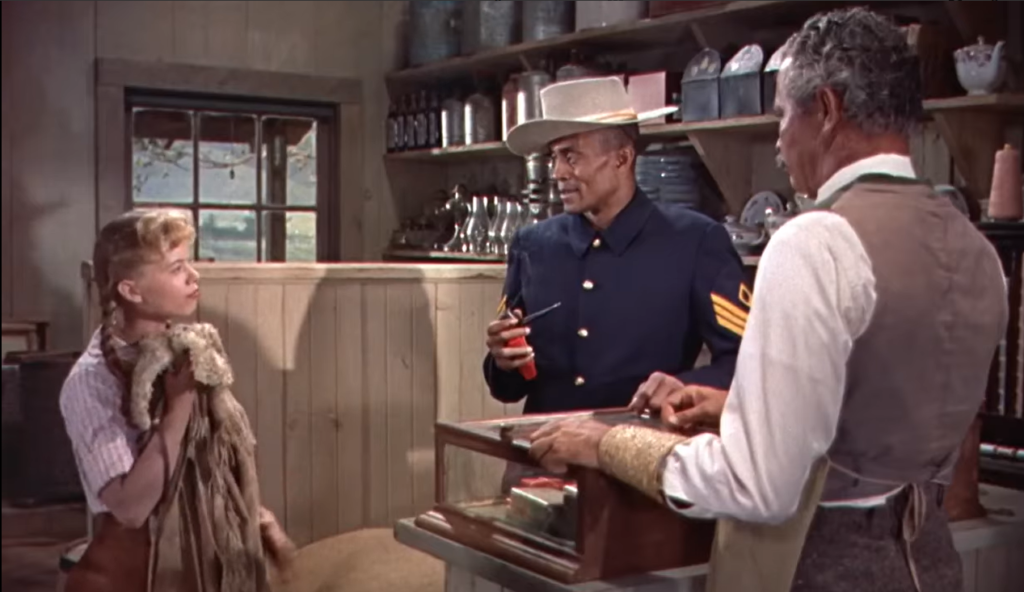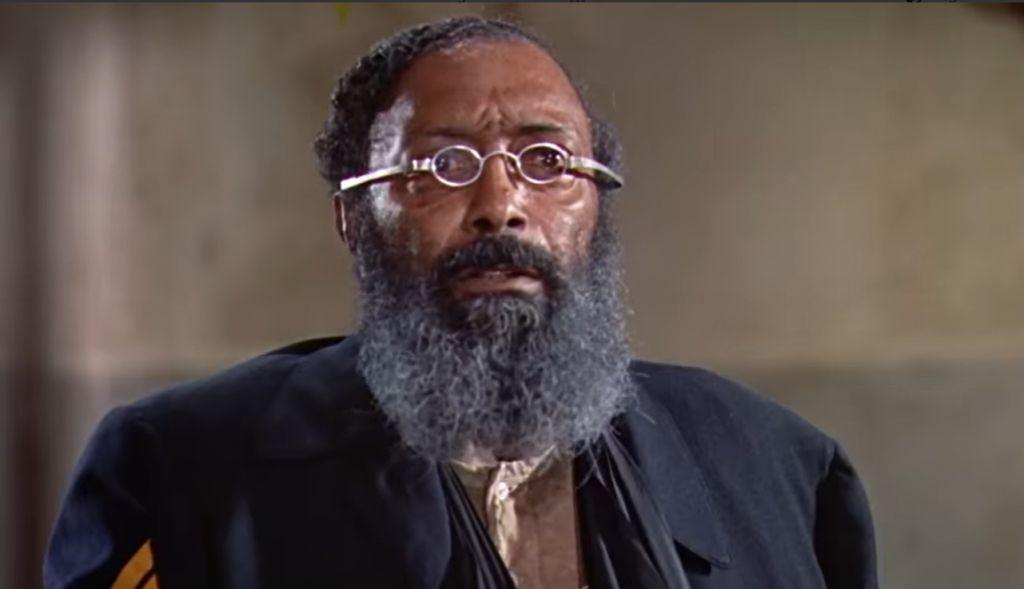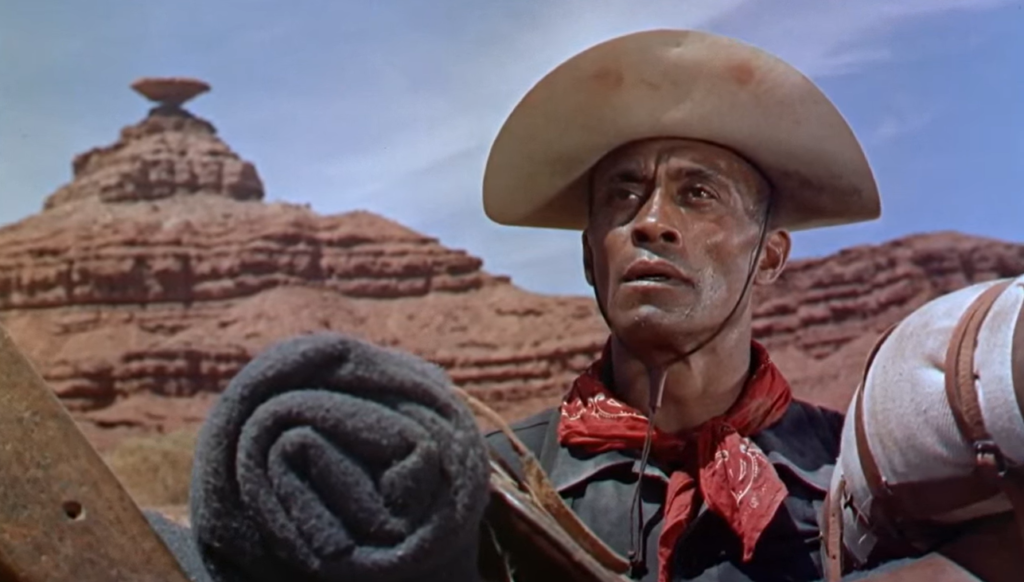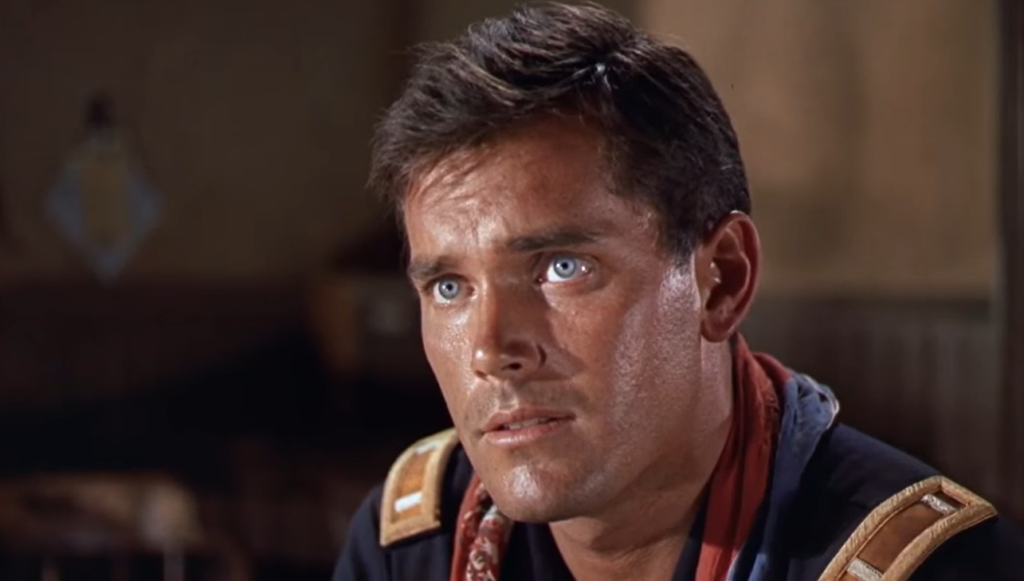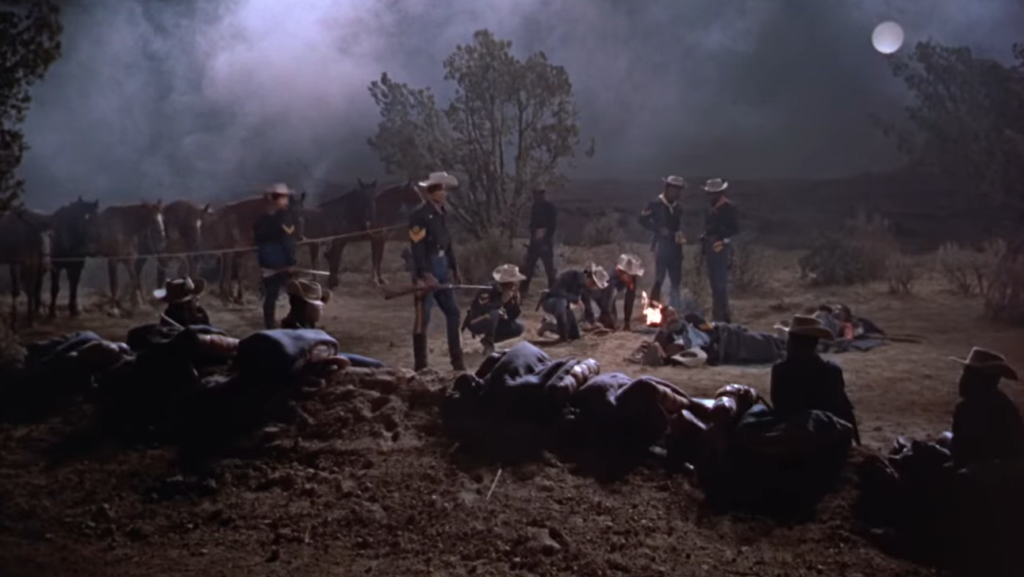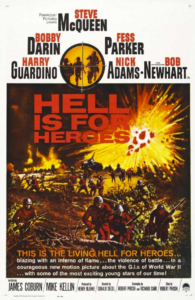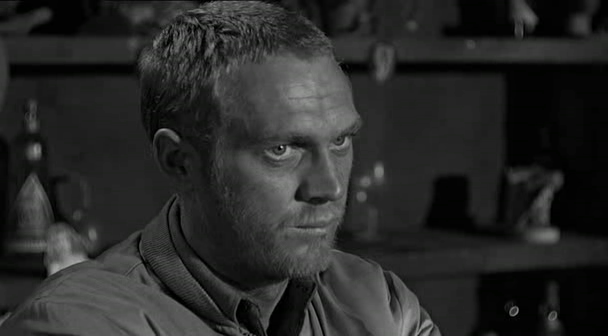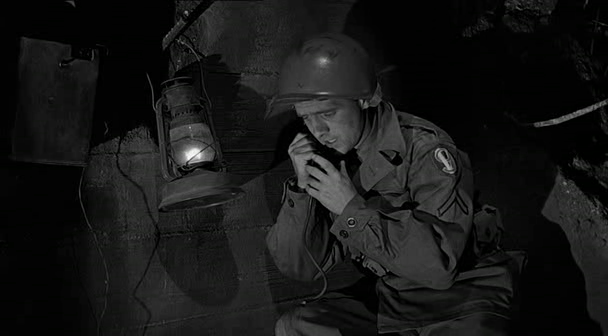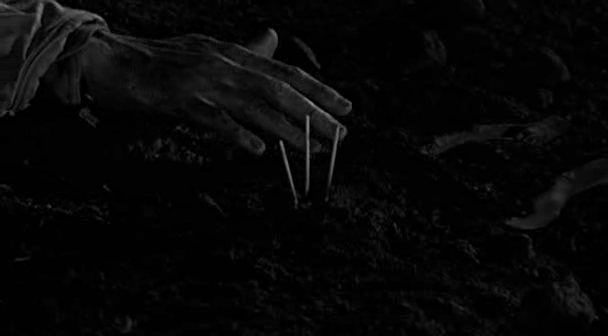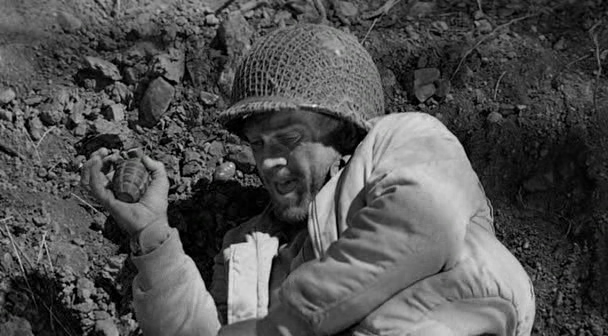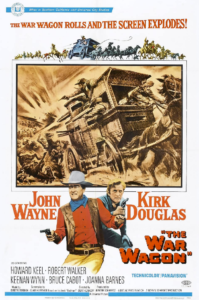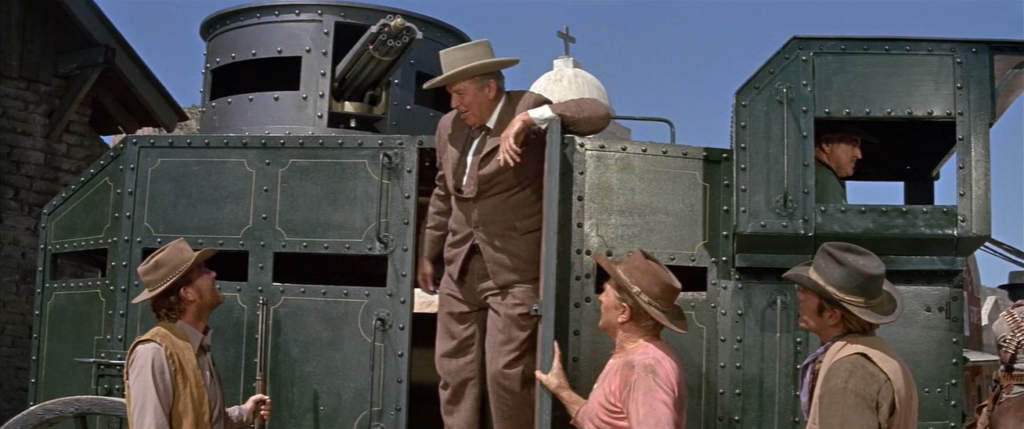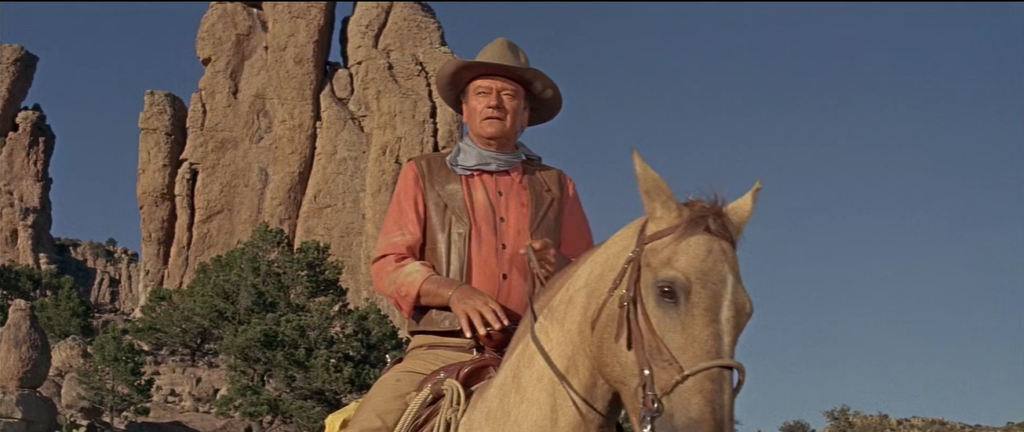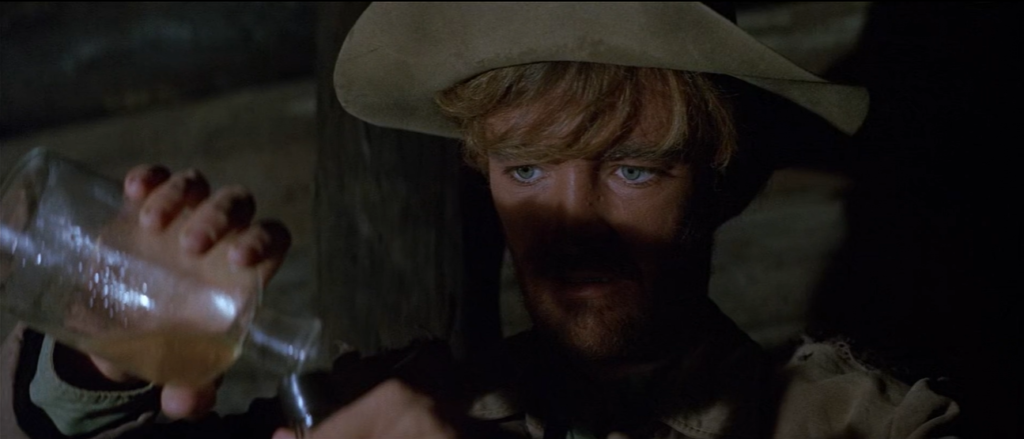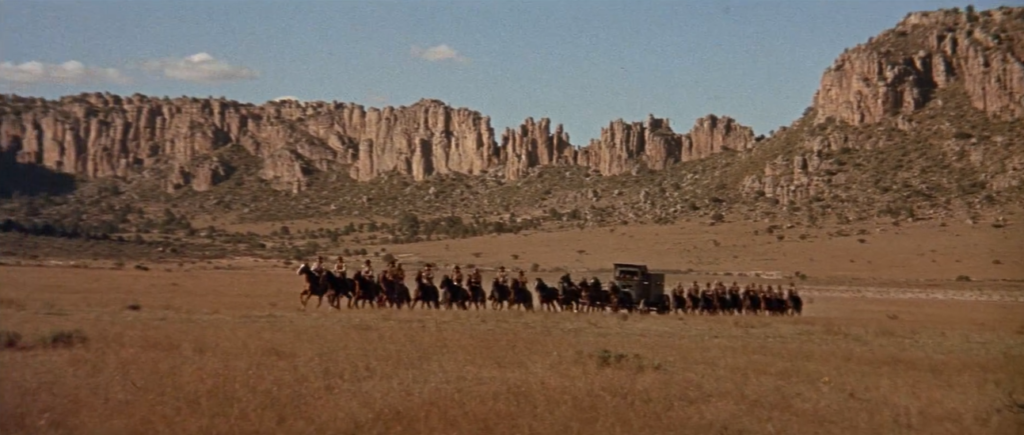|
Genres, Themes, Actors, and Directors:
- Charles Bronson Films
- Eli Wallach Films
- Hit Men
- James Coburn Films
- John Sturges Film
- Robert Vaughn Films
- Steve McQueen Films
- Westerns
- Yul Brynner Films
Review:
John Sturges directed this remake of Akira Kurosawa’s classic The Seven Samurai (1954), transplanting it to the American Western setting it seemed ideal for. The resulting film isn’t a cinematic classic like Samurai, but has gone down in history for its own successes, including Elmer Bernstein’s instantly recognizable score (listed as number 8 on the AFI’s top 25 film scores of all time), its legacy as the second-most-shown movie on television (after The Wizard of Oz), and its all-star cast (many early in their careers at the time).
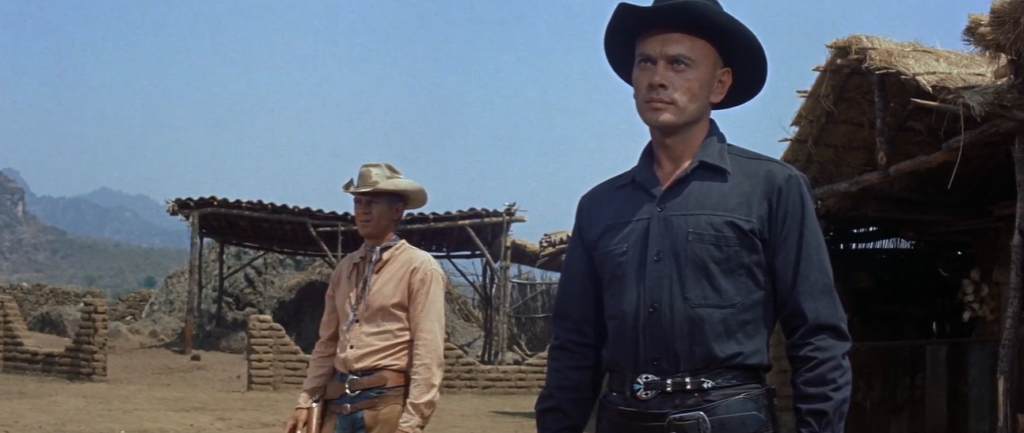
It’s notable for highlighting the lonely, seemingly purposeless existence of gunmen-for-hire, who are always seeking their next job, risking their lives, and denying themselves (or avoiding) the stability of a family and home. To that end, Bronson’s character is given one of the film’s most poignant speeches, as he informs a trio of three hero-worshipping peasant boys that their fathers are the real heroes; in response to one saying, “We’re ashamed to live here. Our fathers are cowards.” he retorts:
Don’t you ever say that again about your fathers, because they are not cowards. You think I am brave because I carry a gun; well, your fathers are much braver because they carry responsibility, for you, your brothers, your sisters, and your mothers. And this responsibility is like a big rock that weighs a ton. It bends and it twists them until finally it buries them under the ground. And there’s nobody says they have to do this. They do it because they love you, and because they want to. I have never had this kind of courage. Running a farm, working like a mule every day with no guarantee anything will ever come of it. This is bravery. That’s why I never even started anything like that… that’s why I never will.
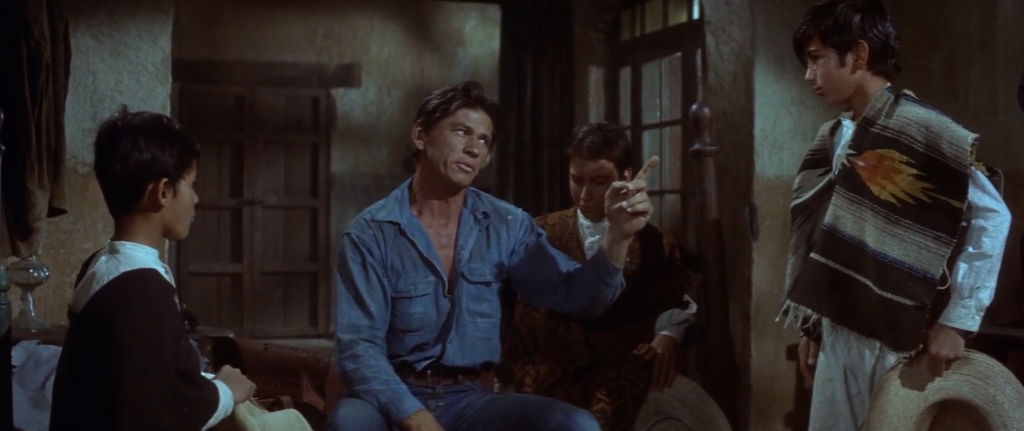
However, there’s an inherent sense of nobility and/or pathos lurking beneath the surface of many of these men, who are willing to take the job for just $20. (Only Dexter’s character — played for laughs — insists on believing there must be a bigger stash in store for them.)
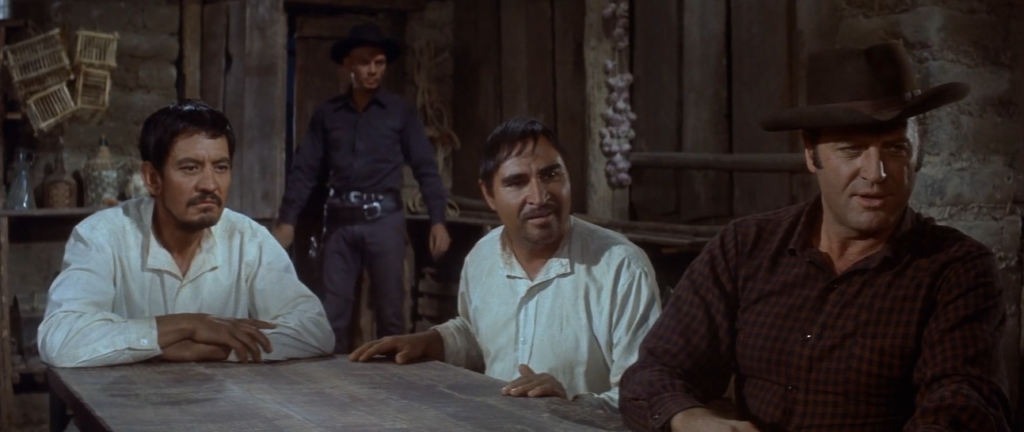
Of special note among the cast are Wallach as the sociopathic bandit Calvera (he gets a great last line):
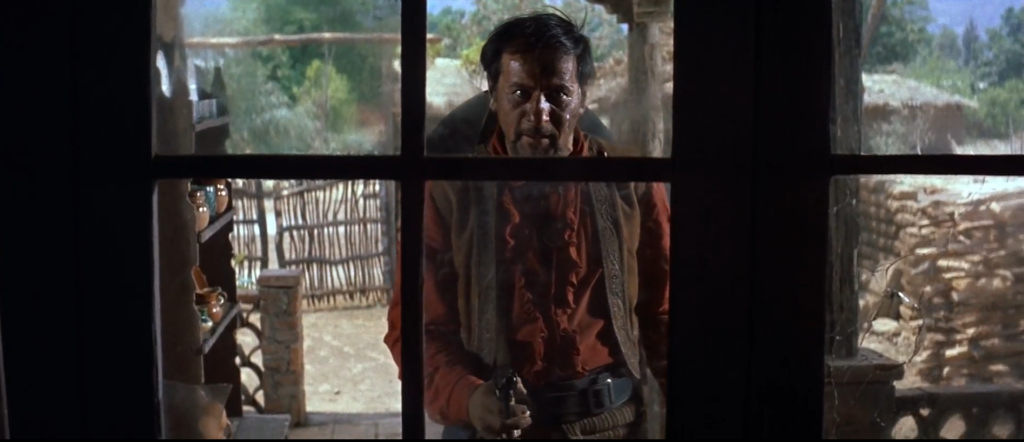
… and Coburn as the laconic knife-thrower Britt. (Coburn was apparently thrilled to get this role given that it mirrored that of the master swordsman in Kurosawa’s film.)
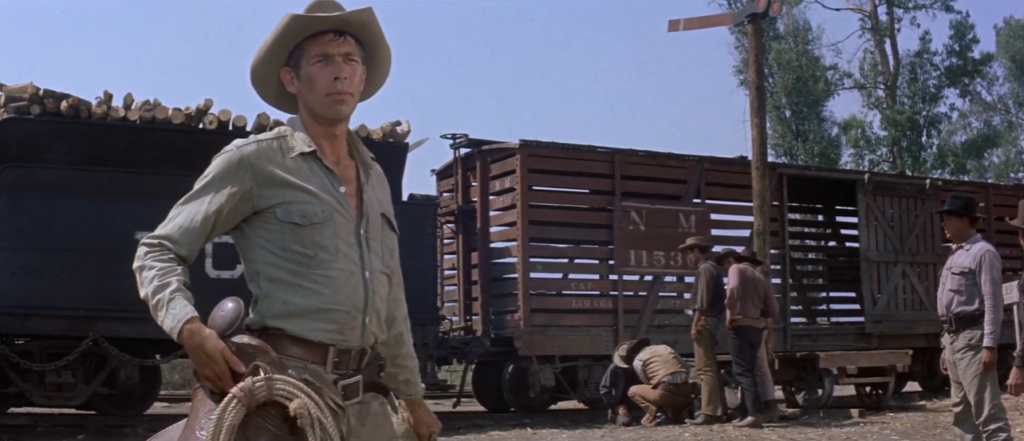
Brynner and McQueen were notoriously at odds during filming, with McQueen eager to upstage his colleague at every turn (he fiddled with his hat a LOT) — though this animosity doesn’t show up on screen.
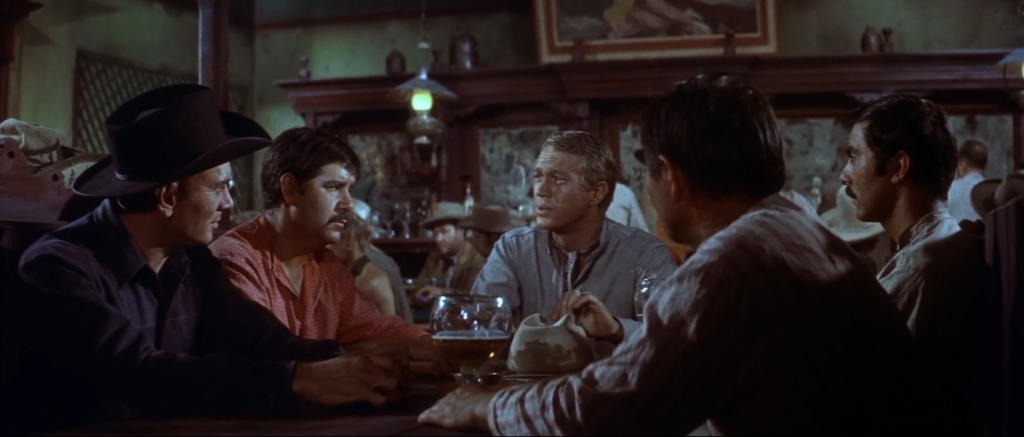
Note: This film inspired three sequels (none listed in GFTFF), a television series of the same name, and a remake in 2016.
Notable Performances, Qualities, and Moments:
- Charles Lang’s cinematography
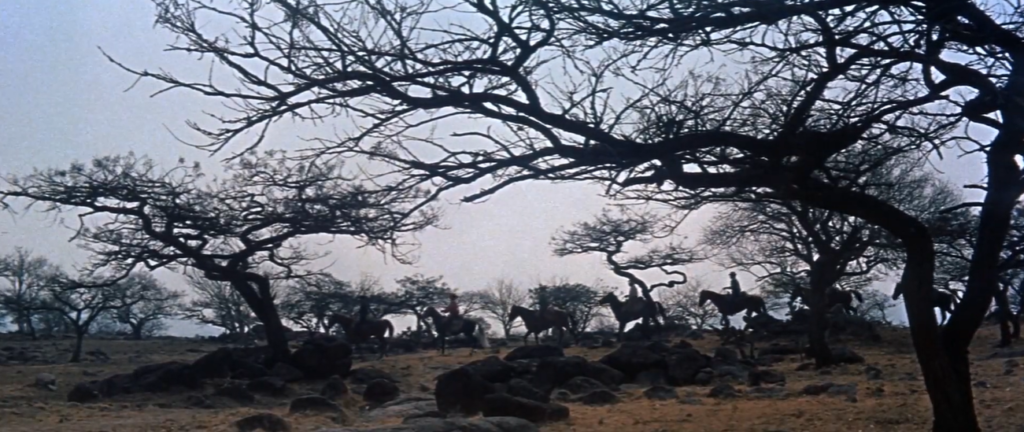
- Fine location shooting in Mexico (with locals)
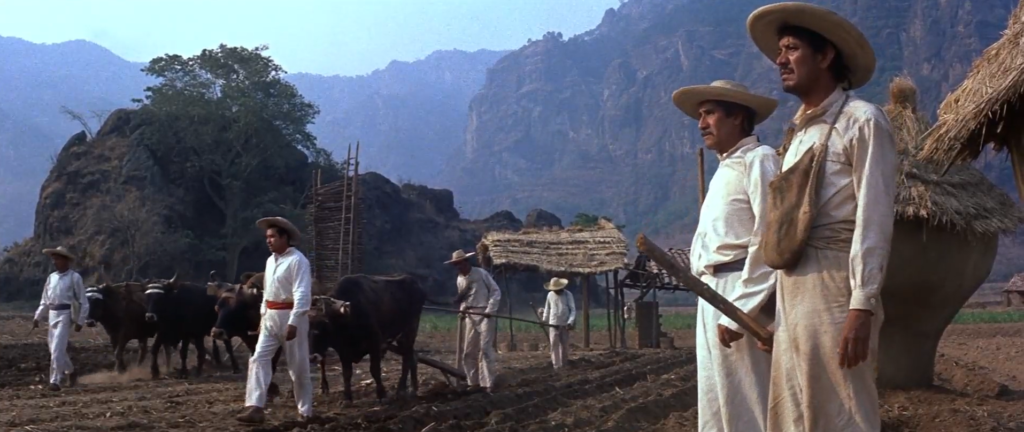
- The masterfully edited final shootout
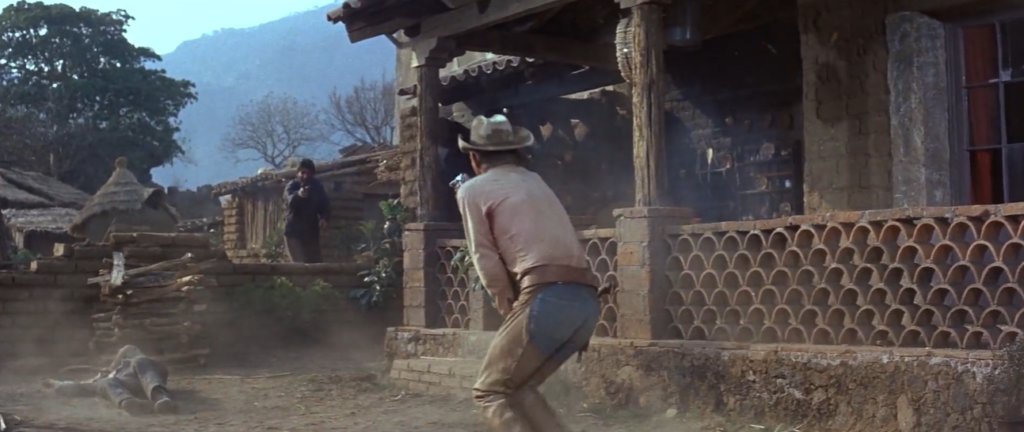
- Elmer Bernstein’s rousing score
Must See?
Yes, once, for its historical value and for Bernstein’s score. Listed as a Cult Movie in the back of Peary’s book.
Categories
Links:
|
